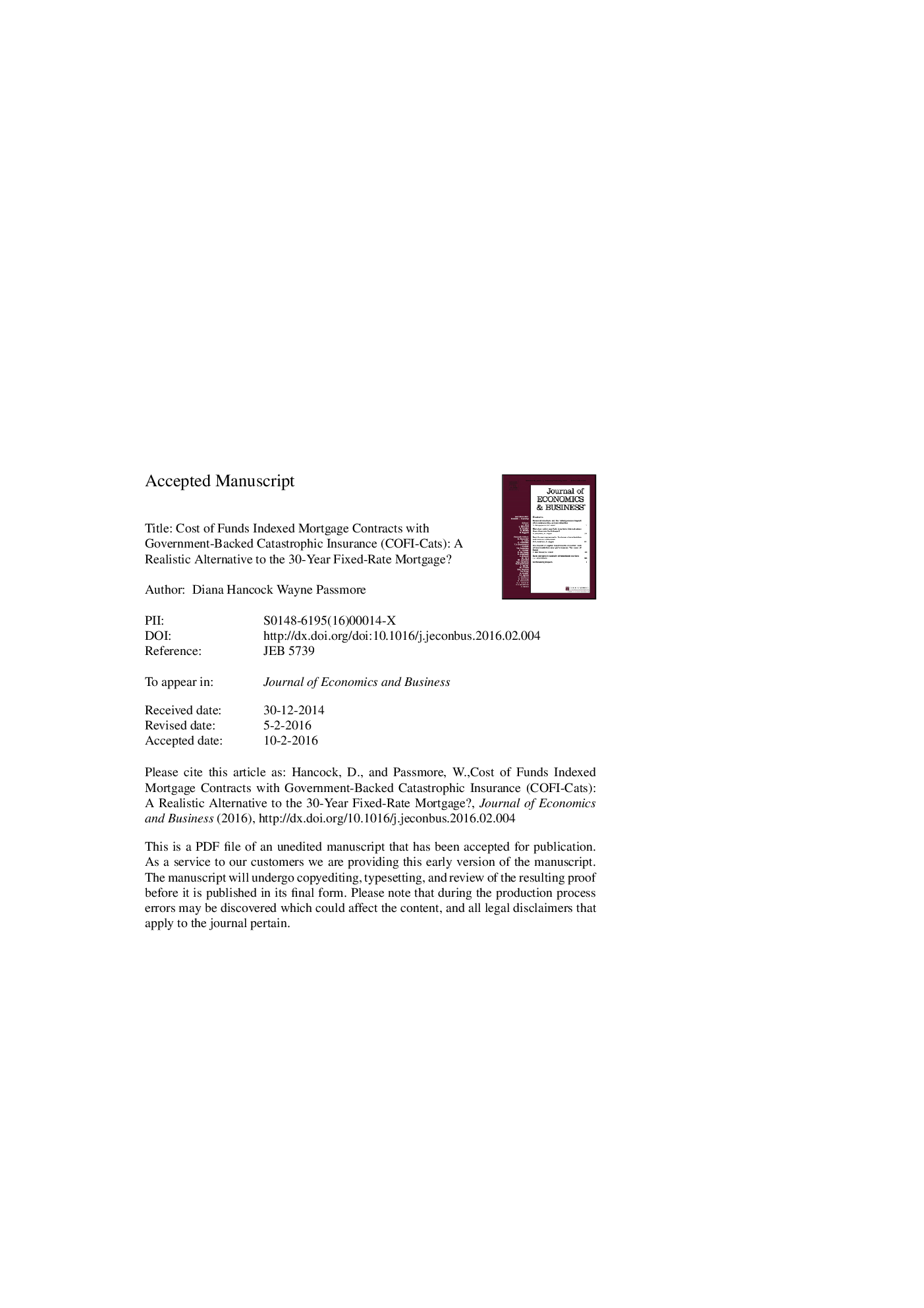| Article ID | Journal | Published Year | Pages | File Type |
|---|---|---|---|---|
| 7360336 | Journal of Economics and Business | 2016 | 45 Pages |
Abstract
For policymakers, replacing fixed-rate mortgages with adjustable rate mortgages, such as COFI-Cat mortgages, could improve monetary policy pass-through when market rates are lowered; households would not need to refinance when interest rates drop, thereby benefiting a broad range of households, including those with little or no home equity and/or low credit scores. As a result, the need for special federal programs such as the Home Affordable Refinance Program or FHASecure is potentially reduced. In a rising interest rate environment, depository institution COFIs tend to adjust at a slower pace than other indexes typically tied to adjustable-rate mortgages. Consequently, the distributional consequences associated with tighter monetary policy are less with COFI-based mortgage contracts than with other adjustable-rate mortgage contracts.
Related Topics
Social Sciences and Humanities
Business, Management and Accounting
Strategy and Management
Authors
Diana Hancock, Wayne Passmore,
